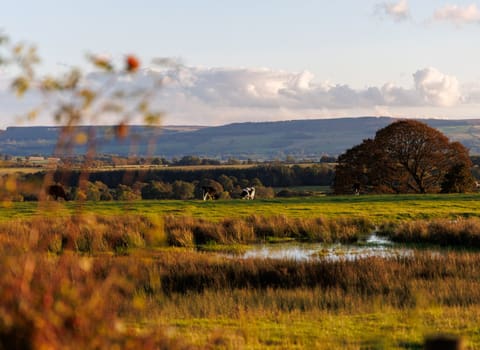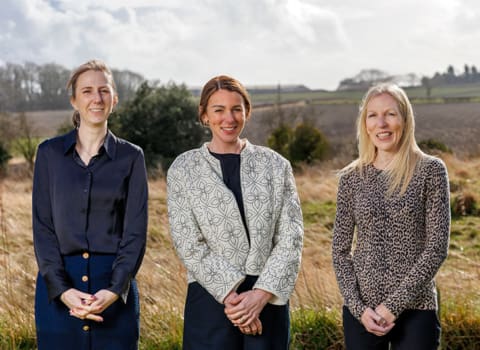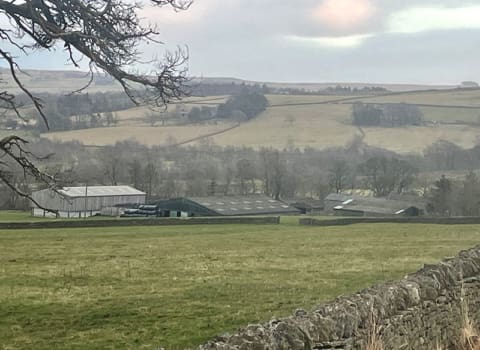Contact our offices
Main office
COLBURN
5 & 6 BAILEY COURT
COLBURN BUSINESS PARK
RICHMOND
NORTH YORKSHIRE
DL9 4QL
Estate Agency Offices are located in
BARNARD CASTLE, BOROUGHBRIDGE & RICHMOND
Residential Management Team
Our Offices
- Alnwick
01665 568310
Email Officealnwick@gscgrays.co.uk - Barnard Castle
01833 637000
Email Officebarnardcastle@gscgrays.co.uk - Boroughbridge
01423 590500
Email Officeboroughbridge@gscgrays.co.uk - Chester-Le-Street
0191 3039540
Email Officechester-le-street@gscgrays.co.uk - Colburn
01748 897630
Email Officecolburn@gscgrays.co.uk - Driffield
01377 337180
Email Officedriffield@gscgrays.co.uk - Hamsterley
01388 487000
Email Officehamsterley@gscgrays.co.uk - Hexham
01434 611565
Email Officehexham@gscgrays.co.uk - Kirkby Lonsdale
01524 880320
Email Officekirkbylonsdale@gscgrays.co.uk - Penrith
01768 597005
Email Officepenrith@gscgrays.co.uk

Collaboration or Litigation? For Richer or Poorer
Divorce is a particularly significant threat to farm and estate owners which are often asset rich but cash poor. In such circumstances the financial and legal implications for matrimonial proceedings require very careful consideration if the family farm or estate is to be preserved for future generations.
The statistics do not make encouraging reading with approximately 119,589 divorces recorded in 2010 an increase of approximately 4.9% on 2009 albeit down on the 121,708 divorces recorded in 2008 and the high of 165,018 recorded in 1993.
Unfortunately divorce can result in farms/estates which have been in the same family’s ownership for generations being sold or crippled with debt which compromises the future viability of the farm/estate to operate in the future.
Court Orders are generally very inflexible and usually stipulate rigid timetables which all too often do not reflect the farming season/harvest year or issues such as Single Farm Payment claim dates!
Divorce proceedings can often be acrimonious; however there is an alternative approach. Collaborative Law which is a relatively new method of dispute resolution for dealing with family disputes entails each party appointing their own lawyer and conducting meetings face to face with the intention of resolving matters without going to Court.
Collaborative Law in England has been available since 2005 and aims to provide a fair and amicable settlement between the parties through a series of meetings with their lawyers and professionals such as accountants, valuers and financial advisers. The principles of Collaborative Law are that the parties retain control of the process and participate at every stage with support from their own legal advisers.
Collaborative meetings are often referred to as “four way meetings or joint sessions”, being a meeting between the two parties and their respective lawyers. Under the process, an agreement will be signed between the parties confirming their intention to work out a settlement without going to Court.
The parties will discuss their objectives and the disclosure of information, including finances. Subsequent meetings will address particular priorities and concerns of the parties with a view to reaching an agreement on the apportionment of finances and arrangements for children. The Collaborative Law process offers a number of benefits including flexibility over timescales and is not subject to the rigid timetables of Court proceedings.
One of the fundamental points of Collaborative Law, is that neither party’s solicitor can represent their client in Court, should the procedure fail. In such circumstances, both parties need to instruct different solicitors, and as such, this provides a further incentive for the collaboration process to succeed but can potentially result in escalating professional costs.
In collaborative cases the participation agreement is the key document and stipulates the rules for the process, which include:-
1. The lawyers will not litigate the case. In the event that a settlement is not reached and litigation is the only recourse the original lawyers must withdraw and new lawyers are appointed.
2. Neither party will take advantage of mistakes made by the other side.
3. The parties will disclose all pertinent information and will not conceal any material facts.
4. The settlement meetings will remain confidential.
5. All experts will be neutral and appointed jointly by both parties.
6. Everyone will behave in a courteous manner and in good faith.
Collaborative Law offers a non-confrontational alternative to litigation and is considered to be a more expedient and less expensive process with the parties encouraged to agree areas of common ground as the basis of forming a settlement.
Specialist Valuation Surveyors in GSC Grays regularly undertake Expert Witness Valuations for a wide spectrum of residential, agricultural and commercial properties for matrimonial proceedings in accordance with the RICS Practice Statement and Guidance Notes ‘Surveyors Acting as Expert Witnesses’. Whilst, a large proportion of cases are resolved on an amicable basis a number are determined by formal Court proceedings.
Divorce will sadly continue to be a factor of modern life and whilst Collaborative Law is anticipated to become an increasingly popular method of dispute resolution it is not the panacea. Court proceedings will continue to be the route taken in contentious and acrimonious cases as exemplified by a number of recent high profile divorce cases with settlements increasingly determined on the basis of a percentage share of the assets rather than a final figure.
As a company GSC Grays has a number of valuers with extensive experience of expert witness work and can offer a holistic approach with specialist valuers in the Residential, Agricultural and Commercial property sectors, acting with complete professionalism and integrity at an emotional and sensitive time for the parties concerned.
For more information on the services available from GSC Grays please call: 01748 829210.
www.gscgrays.co.uk

GSC Grays News
Residential Property Market: Recent Trends and Prospects for the year ahead
Read more







